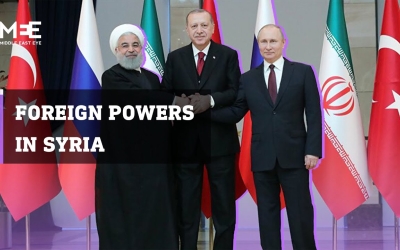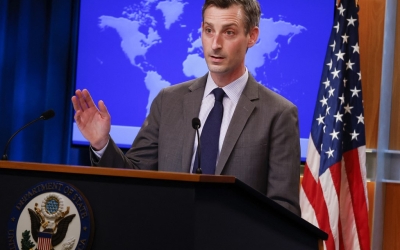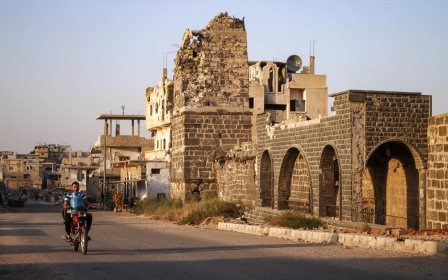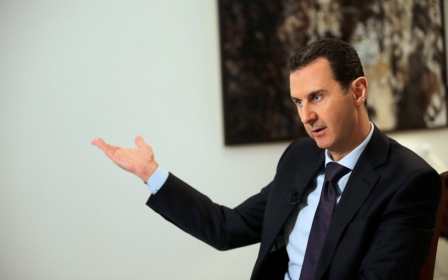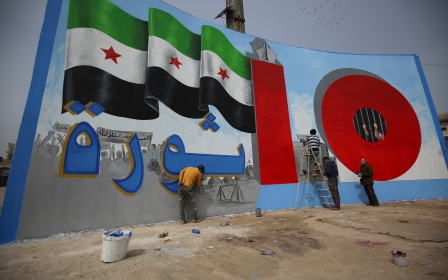Iran calls on US and its allies to halt military actions in Syria at Security Council
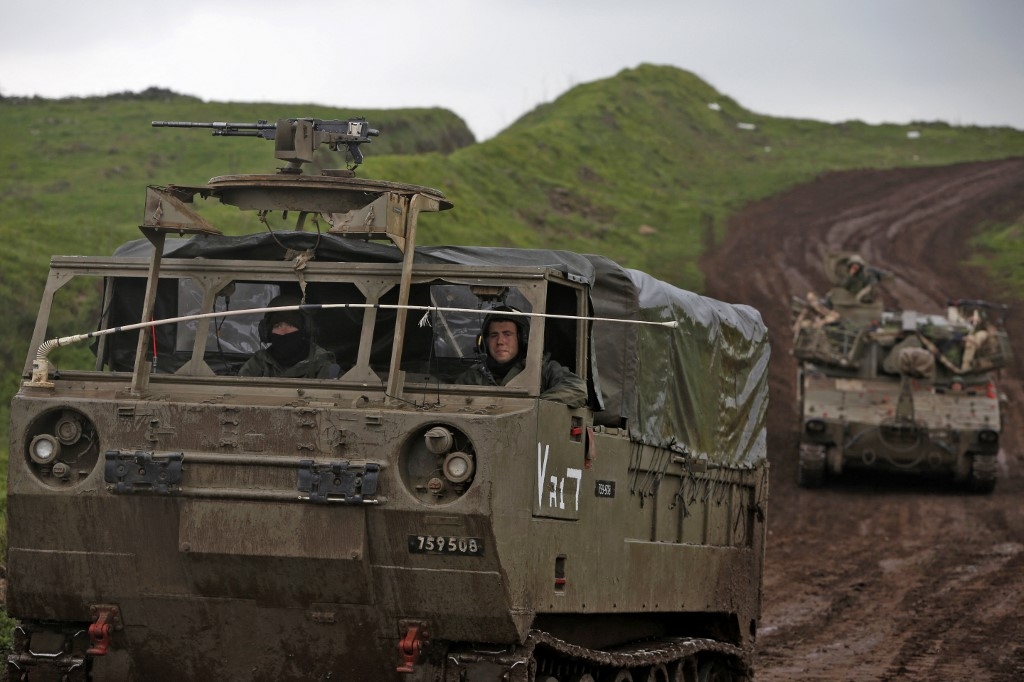
Iran reiterated calls for the withdrawal of all foreign forces from Syria during the latest meeting of the UN Security Council, and singled out US troop deployments and repeated Israeli strikes on the war-torn country.
Iran's UN envoy, Majid Takht-Ravanchi, told the council on Monday that the Syrian people would not accept "the continued occupation of their territory or violation of their sovereignty" and neither should the international community.
'A truly Syrian-led, Syrian-owned, UN-facilitated political process is critical'
- Majid Takht-Ravanchi, Iran's UN envoy
"We once again call for the immediate withdrawal of all foreign forces present in Syria without the permission of its government, particularly US forces that continue to occupy parts of the Syrian territory," Ravanchi said.
The US currently has around 900 troops stationed in Syria, guarding key roadways and oilfields while hoping to prevent a resurgence of the Islamic State (IS) group.
Iran, along with Russia, has long been allied with the Syrian government, led by President Bashar al-Assad.
The US, European and regional allies have for years called on Assad to step down, but as the uprising marks its 10th anniversary, much of the international community has started to rethink foreign policy concerning Syria, given the likelihood of Assad's continued rule.
'Unlawful, provocative and destabilising'
During his Security Council address, Ravanchi denounced the US's 25 February air strike along the Syrian-Iraqi border that targeted an Iranian-backed militia, which had allegedly struck US assets in Erbil days earlier.
"Such unlawful acts escalate the already tense situation in the region, and hence must stop," Ravanchi said, without noting a series of other attacks against US targets that have been claimed by Iran-backed militia groups in Iraq in recent days.
"Equally, we condemn the continued Israeli military attacks in Syria," the UN envoy continued. "They are unlawful, provocative and destabilising. That regime must be compelled to put an end to such military adventurism."
Since the outbreak of the Syrian war in 2011, Israel has routinely carried out raids in Syria, mostly targeting Iranian and Lebanese Hezbollah forces as well as government troops.
In 2019, it also announced - with former US President Donald Trump's support - its intentions to permanently annex the Syrian Golan Heights, a water-rich territory occupied by Israel since 1967.
During his address, Ravanchi called for the political solution to the Syrian conflict to be mediated by the UN, which has been a mainstay in Washington's diplomatic rhetoric concerning Damascus since President Joe Biden came to power in January.
"A truly Syrian-led, Syrian-owned, UN-facilitated political process is critical," Ravanchi said.
US sanctions
The US has conditioned the lifting of its heavy sanctions levied against Damascus on Assad's willingness to make concessions in the name of accountability for the war crimes committed by his government during the past 10 years.
Last week, State Department spokesperson Ned Price told reporters that the US had no plans to normalise relations with the Syrian government or lift sanctions anytime soon because Assad had "done absolutely nothing" to regain legitimacy.
Ravanchi, however, called Washington's efforts counterproductive, pointing out that US sanctions had yet to bring world powers any closer to a political settlement in Syria.
"Mounting political and economic pressures against the Syrian government and people or making multiple preconditions for the peaceful settlement of the crisis has proven to be counterproductive," he said.
"By any measure, these sanctions are unlawful and inhumane, violate the basic human rights of the Syrian people, and must therefore be removed immediately," Ravanchi continued.
For its part, Syria's envoy to the UN slammed the US, UK and France during the meeting for launching "a war of aggression" against his country that he said was an attempt to target the legitimate government and tarnish the image of its leadership.
Middle East Eye propose une couverture et une analyse indépendantes et incomparables du Moyen-Orient, de l’Afrique du Nord et d’autres régions du monde. Pour en savoir plus sur la reprise de ce contenu et les frais qui s’appliquent, veuillez remplir ce formulaire [en anglais]. Pour en savoir plus sur MEE, cliquez ici [en anglais].


